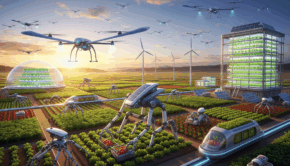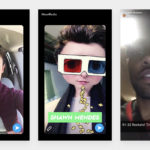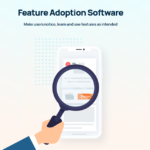Shaping the Future of Mobile Apps With Artificial Intelligence
Artificial intelligence can have its roots traced as far back as ancient Greece where philosophers attempted to map out human thinking as a symbolic system. In the 1940s, the programmable digital computer was invented based on abstract mathematical reasoning. After that, scientists started to seriously think about the possibility of inventing an artificial, electronic brain.
The main goal of artificial intelligence is to imbue artificial technology (or computers) with the ability for human-like thinking. Hence, we now have computer programs that collect data, glean what they can from it, learn from past data and adjust to new data inputs. This is the field where scientists are teaching computers to think like us.
From the great Greek philosophers to the scientists who founded the field of AI research in the summer of 1956, all of their work is now being felt by every person who has ever accessed a computer or held a smartphone; but one never really realizes just how intertwined our lives are with artificial intelligence technology. AI is being used not just in the different stages of maintaining a business (from hiring to accounting to maintaining and processing data), but also in nearly every field vital to our lives.

Source
We find AI technology in medicine, transportation, farming, even mobile app development. Some of the applications we download into our phones are run by AI technology. And we’re not just talking about AR mobile games, either. We also mean the innocuous apps that we take for granted actually use AI.
Mobile applications that use AI
Virtual assistants
Virtual assistants are your Siri, Cortana, Google, and Alexa applications. These were built to address consumer requests. These applications can send text messages, make calls, do searches and respond to voice commands.
Most virtual assistant applications use voice queries and natural language user interface or processing. Some can even “learn” your habits and perform more complex tasks based on your usage data. More advanced virtual assistants can be downloaded across multiple devices, not just on your mobile phones.
Language apps
Before the COVID-19 lockdown was implemented in most places around the globe, people were more mobile. Millions of people fly across the globe at any given day. Hence, the popularity of language apps rose along with people’s mobility.
There are plenty of language apps available online. These apps pull data from various online sources to provide you with learning material to help you on your journey to learning new languages. Some apps even anticipate which parts of the lessons you are more likely to forget and help you retain that information. Duolingo, a popular, free language application, uses a machine learning function called “birdbrain” to calculate your accuracy and adjust the difficulty of the lesson to match your aptitude.
Business applications
AI technology is also being heavily used in the business world. There are downloadable applications out in the interwebs that handle specific areas of businesses. These apps handle things like scheduling meetings, accounting, payroll, worker’s compensation, and project management.
These applications gather massive amounts of data, collate them into an organic filing system, and make those data available for consumption. For apps that offer accounting and bookkeeping services and payroll, the AI systems enable the app to accurately compute taxes, pay, and insurance in such a way that financial losses and possible negative repercussions are mitigated or otherwise avoided all together. Having an accurate computing system in an application reduces the chances of human error to a minimum.
Consumer services
Because nearly the entire world went on lockdown due to the pandemic, the rise of mobile applications that cater to actual customer needs like food and grocery delivery and even health services became inevitable. These applications enabled both the businesses that provide these services and the customers who need the services to continue their mutually beneficial relationship despite the restrictions placed on the world during the pandemic.
The systems behind these applications analyze how customers use the applications and provide a more personalized experience to each customer. Things like ads placement and targeted business campaigns are pushed by AI systems to help businesses gain more customers and for consumers to discover services that they want and need that they did not know of previously.
Mobile games
Artificial intelligence is being used in mobile games to give players a better gaming experience. AI is used in mapping out the game and controlling the direction in which your game character goes. AI is also used to run NPCs (non playable characters) in RPG games.
Though admittedly, AI in game design could use a little more push. If you compare the sophistication of older games to the newer ones available in the App Store or Google Play, you can see and feel the difference. While AI’s ability to “learn” from previous gameplays can make using more sophisticated AI processes render a game near unplayable (the AI would sooner or later always win), it would provide for an interesting, more personalized experience.
Conclusion
With more sophisticated processes being integrated in mobile applications and app updates, we can expect that applications can provide a better experience for consumers. Advancements in AI technology can bring better data security for both consumers and businesses, more personalized services, and better games and gaming experiences.

















